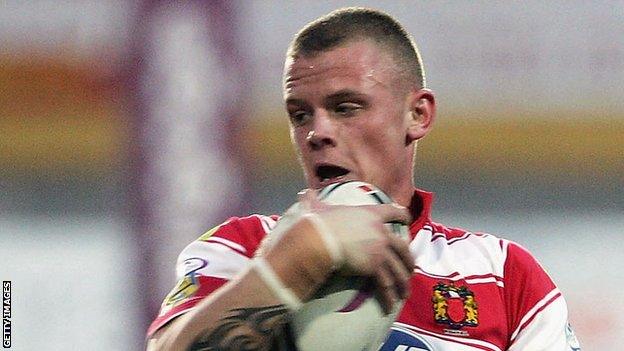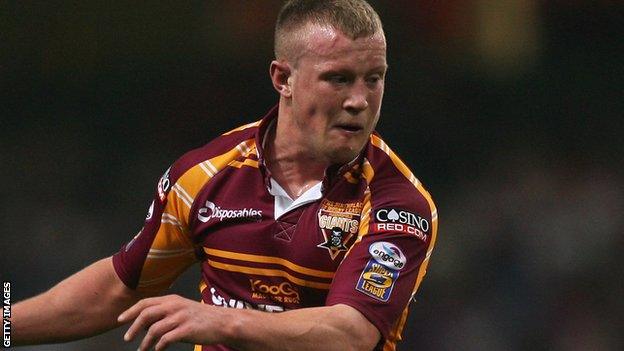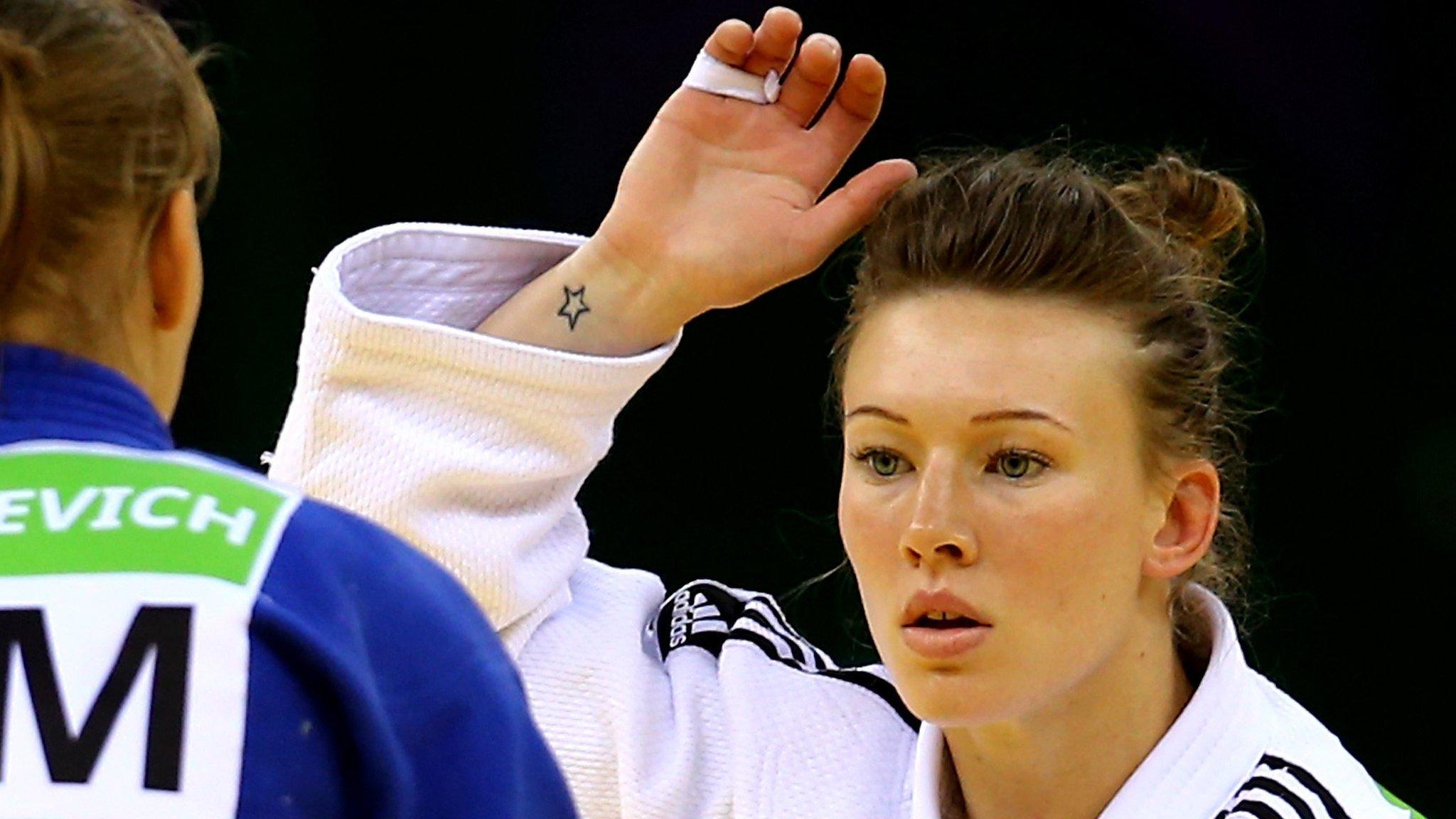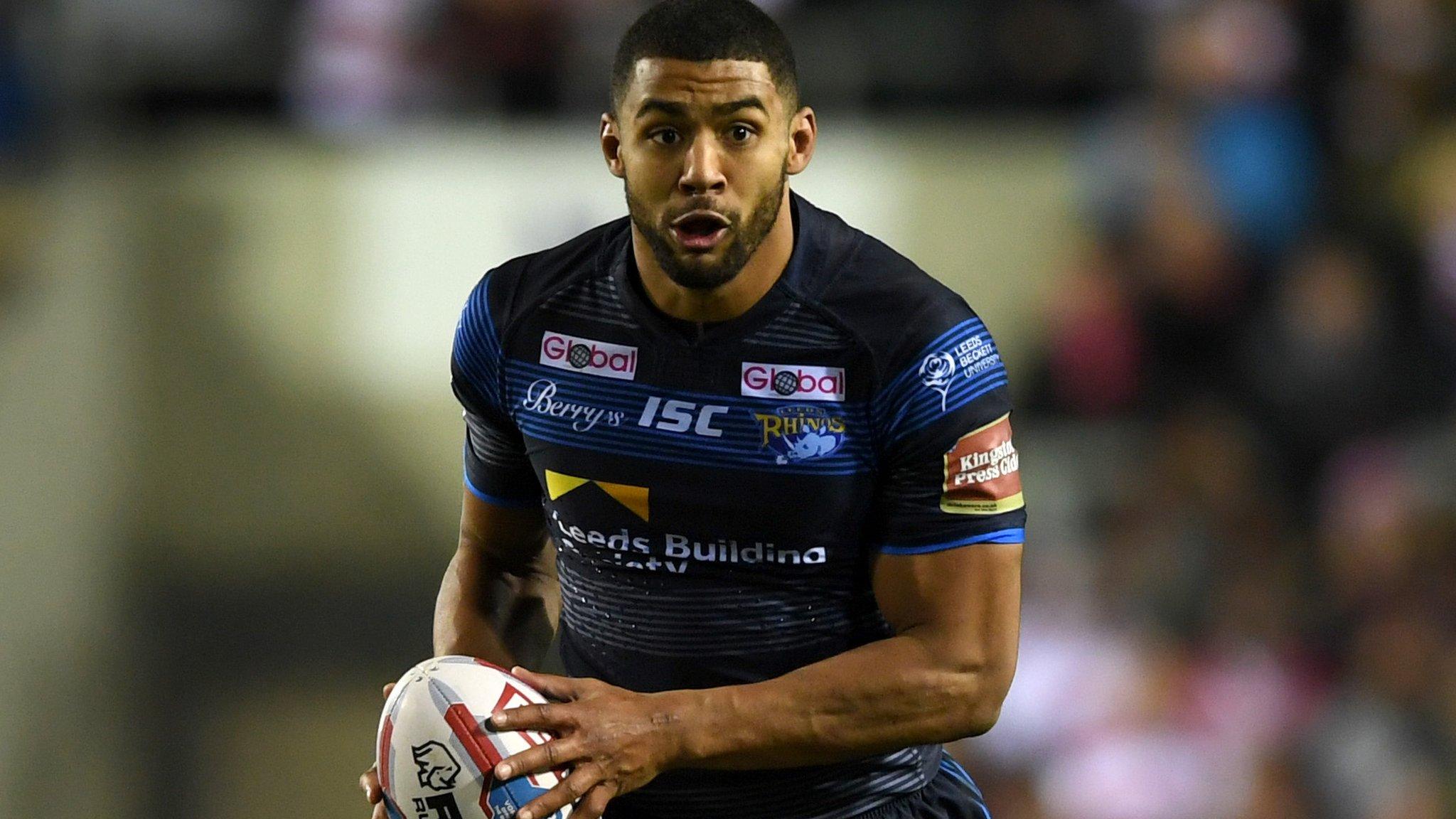Luke Robinson & Kevin Brown on concussion fears and safety in rugby league
- Published

Kevin Brown, now playing for Warrington Wolves, made 69 appearances for Wigan Warriors between 2003 and 2006
It should have been a day he would never forget - playing for Wigan in the 2004 Challenge Cup final against the old enemy St Helens. Instead, after two knockout blows, Kevin Brown was wandering alone, dazed and confused, around the streets of Cardiff.
It was the greatest moment of his life - but, after a clash of heads, Luke Robinson - then at Huddersfield Giants - lost all memory that his wife had given birth only three days earlier.
Two isolated incidents for former half-back partners who tell this week's BBC Radio 5 live podcast they fear what the future could hold for them after repeated concussions in their careers.
But both insist the game is getting to grips with head injury protocol, making it much safer for players now beginning their careers.
Robinson, who retired from playing 14 months ago, says he was knocked out at least 30 times playing rugby league.
He says: "The dangers are incredible and it's worrying. My wife is extremely worried about me in the future.
"If you go on YouTube, you can see one concussion. I clash heads with James Graham. My wife had given birth on the Tuesday, I was playing the game on the Friday."
For the rest of the match, Robinson chased after team-mate Danny Brough, asking him if he was a dad.
"It was only when I got home and my wife was there with our first born, Leo, that it all came flooding back that I had a kid," he adds.
"In another game, I got a hit to the head. Five or six hours later I got home, I felt fine. But I rang for a taxi to go to my friend's birthday and I couldn't remember where I lived.
"I had to go to my study and get a bank statement out, and it was only then that I remembered."
Brown, now 32 and playing for Warrington, missed the Easter fixtures after being concussed twice in three previous games.
But that protocol, external of being forced to sit out matches is only a recent development.
"In the 2004 Challenge Cup final, external, I played in the centre against St Helens. I don't remember the game," says Brown, who played on despite being knocked out twice.
"After the game, I had no idea what was going on. I missed the bus and I was walking round Cardiff with my tracksuit on.
"My team-mate Martin Aspinwall found me and took me back to the hotel because I was delirious and I didn't know where I was. But after those two concussions, I played again the week later. I only know I played a week later because I broke my leg at Wakefield.
"There was obviously nothing in place to protect you from getting a further head injury a week later, which they're saying now is the most dangerous."
Both players believe the protocols now in place will protect players.
"I was forever getting knocked out and telling the physio I was fine," says Robinson, 32.
"But now it's out of the players' hands. They're escorted down to the dressing rooms and a head test is done."

Robinson, an England international, retired in February 2016 because of a hip injury
Brown adds: "Getting concussed isn't dangerous, it's getting concussed again while your brain is a little bit swollen that can really affect you.
"That's been take away a lot now with the cogsport tests and the protocol. You're not allowed to play on a six-day turnaround if you have had a concussion.
"Also, I've been knocked out six or seven times when I've passed the ball and been shoulder-charged. The game stopped that tackle and started banning people, so people stopped doing it.
"It's good that rugby league took the stance and is looking after the players."
Despite his concerns about the future, Brown says he wouldn't have swapped his career in rugby league.
"The life I've had playing rugby has been unbelievable," he says. "The opportunities it's given me, the enjoyment it's given me, far outweighs the negatives of the head knocks.
"Touch wood, I don't have any side-effects when it's finished."
- Published18 April 2017

- Published13 April 2017
